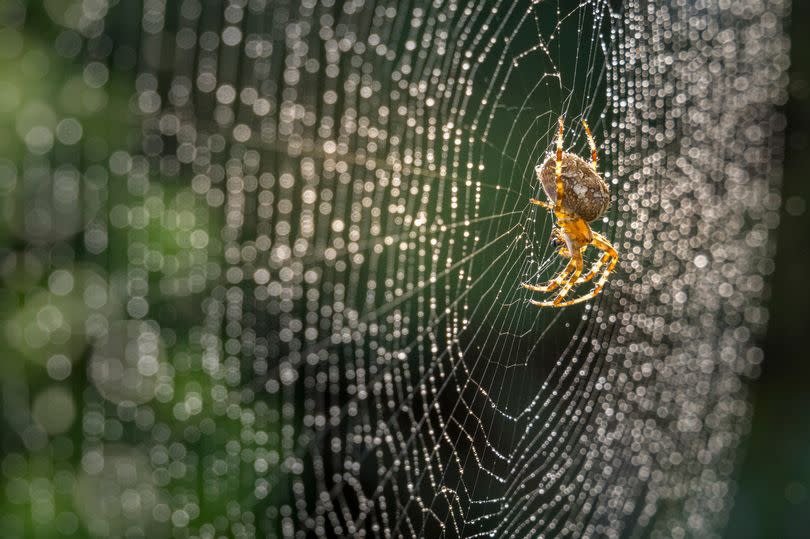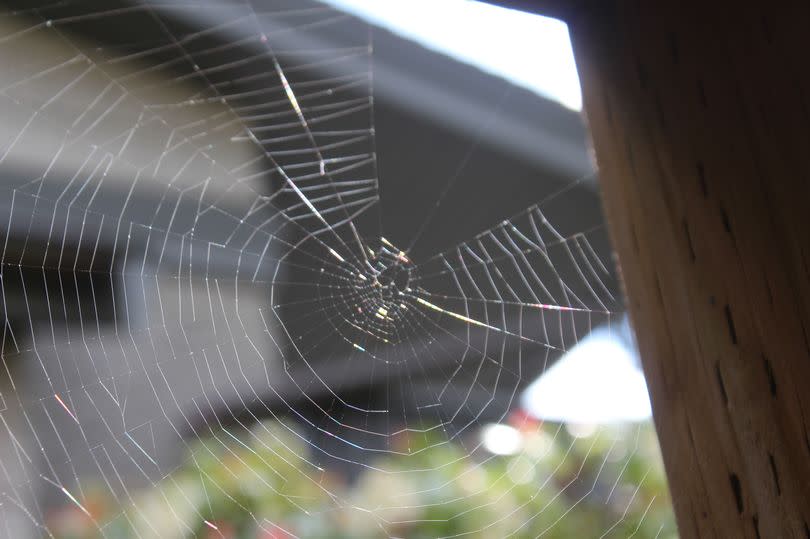Spiders in your garden could be natural solution to hay fever symptoms

If you're one of those unfortunate ones battling hay fever, leaving a few spiders to linger around your garden might just be the unexpected fix you need. Understandably, arachnophobes might rather endure the itchy eyes and constant sneezing than share their space with these eight-legged critters but there's actual science supporting this.
As the British summer is well underway, high pollen levels are making life insufferable for hay fever victims. But nature often has its funny ways and this time, spiders could be coming to the rescue.
A study at the University of Exeter discovered that contrary to popular belief, spiders don't just feast on bugs. They often bulk out up to a quarter of their diet with pollen. The research that focused on orb web spiders - a frequent sight in UK gardens - found the creatures actually opt for pollen nutrition even when insects are abundant.
The investigation found that the sturdy silk webs spun by these spiders trap not only bugs but also airborne pollen and fungal spores. Orb web spiders often dismantle and eat their webs to reuse the silk proteins. The suggestion is that during this process, they also consume the pollen, reports Birmingham Live.
Dr Sanders, one of the researchers from the university's Centre for Ecology and Conservation at Penryn Campus, unveiled some intriguing facts about spiders, asserting: "Most people and researchers think of spiders as pure carnivores. But in this family of orb web spiders that is not the case."
"We have demonstrated that the spiders feed on pollen caught in their webs, even if they have additional food, and that it forms an important part of their nourishment. The proportion of pollen in the spiders' diet in the wild was high, so we need to classify them as omnivores rather than carnivores."

The Met Office has offered some insight into the intriguing dietary patterns of certain spider species. Typically categorised as carnivorous organisms, there are some that actually feed pollen to their young. How these eight-legged creatures manage to ingest the pollen with their diminutive mouthparts remains unclear, but the reduction in airborne pollen could be a welcome relief for hay fever sufferers.
Studies sourced from the National Library of Medicine suggest that juvenile orb-weaving spiders make their appearance in the spring, a time when insects are sparse but pollen and fungal spores are plentiful. It appears that these microscopic organic materials could be the main source of nutrition for these spiderlings, while insects might only play a secondary role as extra nourishment.
So, don't be too hasty to sweep away any spider webs you stumble upon in your backyard. Rather than just entrapping common insect pests, these silken structures may also be capturing bothersome pollen particles, potentially offering allergy relief to those plagued by seasonal allergies.

 Yahoo News
Yahoo News 
